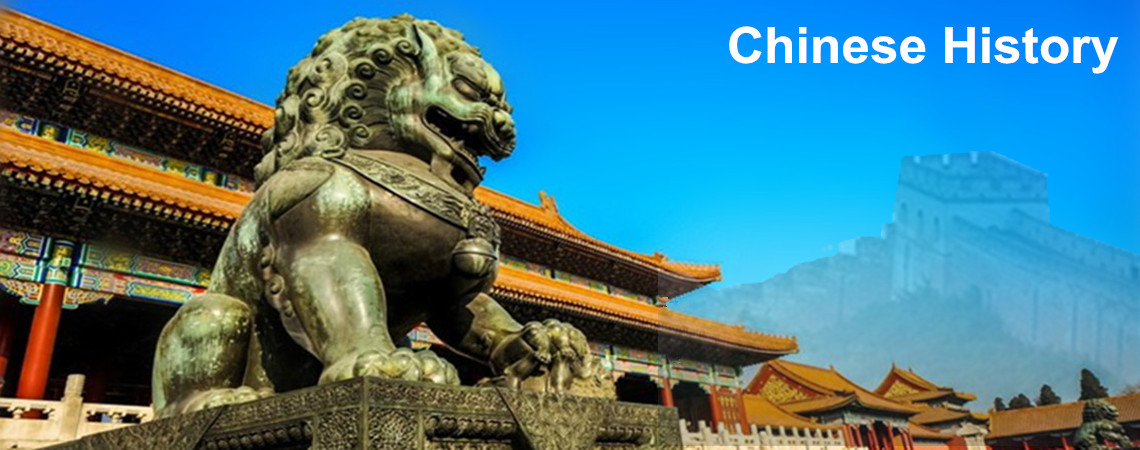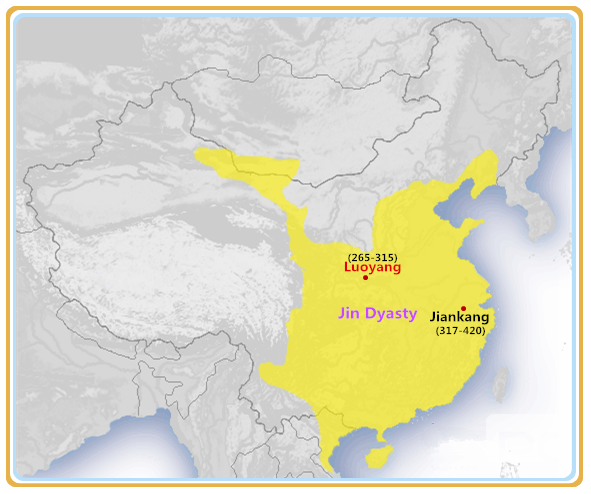
Western Jin Dynasty(265-315)
Facts of Western Jin Dynasty
Time: 265AD-315A.D
Capital: Luoyang
Emperors: Wu...5 emperors
Replaced by: Eastern Jin Dynasty
Introduction to the Western Jin
 Sima Yan established Jin Dynasty in 265
Sima Yan established Jin Dynasty in 265
In late time of the Three Kingdoms Period (220 - 280), Sima Yi grasped the real power of Kingdom of Wei. After he died, his two sons Sima Shi and Sima Zhao successfully took power. Sima Zhao was more ambitious and was always plotting to replace Kingdom of Wei with Jin. As his power grew strong, he proclaimed himself to be 'King of Jin' and his son Sima Yan to be the prince. After Sima Zhao died, Sima Yan soon took the place of Cao Huan, the last emperor of Wei, changed the state title into Jin and reclaimed himself Emperor Wu - thus establishing the Western Jin.
Sima Yan killed Wu and unified China in 280
After the founding of Jin Dynasty, the last kingdom of the Three Kingdoms Period - Kingdom of Wu still existed. In 280, the Jin army attacked the capital of Wu which made the emperor of Wu surrender. Since then, the Jin Dynasty unified the whole nation. Meanwhile, Sima Yan honored a list of his meritorious relatives to be kings.
During the reign of the second monarch Emperor Hui, the political power fell into the Empress Jia because of Emperor Hui's incapability. Resenting the ruling of Empress Jia, those honored kings all plotted to kill her and monopolize the Royal power. Therefore, the so-called 'Rebellion of the Eight Kings' started.
In the following years, battles took place constantly between those kings. In 306 when one of the kings poisoned Emperor Hui, Emperor Huai was arranged to succeed thus the rebellion ended. The rebellion could be seen as a catalyst which worsened the originally feeble regime of Jin.
In late years of the Western Jin, not only did domestic people roused to revolt against the tyranny, but also the exotic ethnic groups such as Huns and Xianbei were covetous of the Jin Court.
In 308, Da Chanyu (the monarch) of Huns, Liu Yuan began to carry out his plan to ruin the Jin Court. He sent his army into Jin's capital Luoyang and captured Emperor Huai. Soon officials of Jin Court hurriedly enthroned a new monarch - Emperor Min in Chang'an (currently Xian). However, Chang'an City was encircled by the Hun troops in 316. Immediately after this, Emperor Min surrendered, putting Western Jin to an end.







 Ask Questions ?
Ask Questions ?